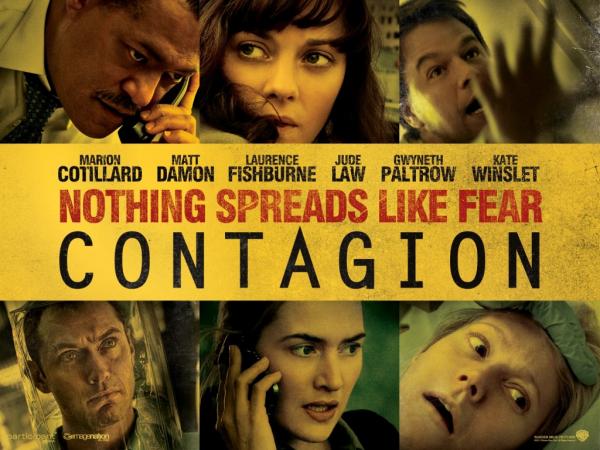Thanks Ken. I get your drift. Buy Disney stock now, while prices are down.
Stand or add on Netflix, for sure dump United, AA, or any airline-cruise line stock.
Phew!, and I thought I was going to be bored at home.
Social Distancing and the Netflix Effect

Because our understanding of the pandemic is so incomplete, and still evolving, it is impossible to work out what the consequences will be. For example, consider car sales. People might be afraid to go into public places, including car showrooms, so they will buy fewer cars; if they work from home for an extended period, they will drive less and might not need a new car; when they see their 401(k) taking a hit, they might defer a car purchase — from all this, we might conclude that car sales will be down.
But if people are afraid to fly they might take longer road trips and thus might need a new car; if people are afraid of using mass transit, they might instead drive more and thus need newer cars; if cities continue to have a high infection rate, the trend toward urbanization might reverse, and people might want more open suburban homes and thus they might drive more — for all these reasons, maybe people will buy more cars. In other words, it's complicated.
Even in these early days, we are seeing changes in how we consume entertainment. First and foremost, we are advised to avoid large crowds. Many people will be wary of going to movie theaters, live concerts, plays, film festivals, and similar events; in any case, many large events are being cancelled or banned altogether.
Movies have traditionally been resilient to economic hard times; during the Great Depression, movies offered a means of escape, and remained very popular. But this time things are different. Globally, many movie theaters have been closed. So far, it is estimated that the movie industry has lost $2.15 billion in box office revenue. Studios are reacting by pulling their blockbuster Spring releases; for example, the new James Bond movie No Time to Die has been rescheduled from April to November.
From this, we might conclude that the movie industry will be hit hard. In fact, the financial consequences could be enormous, but also hard to pin down. Not all movie theaters will be severely impacted. Theaters in cities with high infection rates will surely see empty seats, but if an area is not greatly affected by the virus, tickets might continue to sell. So the effects on the entertainment industry will differ by region, and by the travel required to get there.
A company like Disney will surely suffer losses from decreased attendance in movies, theme parks, and cruise ships, but may see increases in subscriptions in their Disney+ streaming service. So far this year, Disney shares have dropped 29%.
Of course, the best way to avoid any travel and avoid crowds is to stay at home. Like Disney, Netflix is part of the entertainment industry, but it is not diversified with theatrical movies, theme parks, cruise lines, etc. It is almost purely a streaming company. Surely it will see financial benefit as people elect to stay at home, and watch movies in safety. Captive home audiences would probably consume even more content than usual. But as production work is slowed or cancelled, Netflix might face challenges in getting new content; if you are shopping a movie, now would be a good time to sell it to Netflix. And if people are laid off, they might have less money to spend on subscription services. Like I said, it's complicated. So far this year, bucking the trend, Netflix shares have risen 4%.
If Netflix prospers, along the same lines, it might be the case that we'll see a shift toward stay-at-home entertainment. In recent years, consumers have increasingly embraced experiential pastimes; for example, tourist travel, adventure travel, live sporting events, festivals, cruises, theme parks and real-world activities have boomed. But that might change, and people might instead turn inward to home entertainment, AI, or other social-distancing recreations. Perhaps sales of home-theater gear will increase, at least among those who can still afford it. Call it the Netflix Effect.
No one knows how many of these changes will be long-lasting. After enjoying Netflix at home for an extended period, certainly some people will decide that watching movies at home is easier, and cheaper, than going out to a movie theater. And others will be anxious to get out of the house.
Life will go on, but this tragedy will change us. For now, Steven Soderbergh's Contagion has become one of the most-viewed online movies.
- Log in or register to post comments


Convenience, availability, and affordability have been the major forces driving the rise of streaming for all things entertainment related. I doubt in but a small minority of instances that necessity was the utmost reason a person chose to stream. The corona virus pandemic has changed this. The current rise of streaming is, therefore, little surprise. The mystery will be how after society returns to whatever the new normal is will streaming finally kill physical media and cull large numbers of already depressed movie theaters? Tastes change as do habits. Sometimes a lot faster than is comfortable for everyone. I’m in no way making a living in any way related to entertainment. In fact I’m a third generation shoe retailer. I’m going to go out on a limb here and predict like the internet has had a chilling (killing is more accurate) effect on traditional mom and pop brick and mortars this corona virus will claim many non-human victims. This may cast a huge shadow on the electronics and entertainment industries too. In 50-years kids may read in their school books the disappearance of movie theaters, CDS, DVDS, and related electronics sprang forth from the 2019-2020 corona virus pandemic. I do not think I’m being a fatalist…more of a realist. Thirty-nine years ago when I took over the reins of my family’s shoe retail store there were about a dozen independent footwear stores in my little town of about 15,000. Today, besides me, there is only one other independent shoe in my town. I fear even though I believe we will defeat the corona virus that it will have a lingering array of bad things in it’s aftermath.


























































